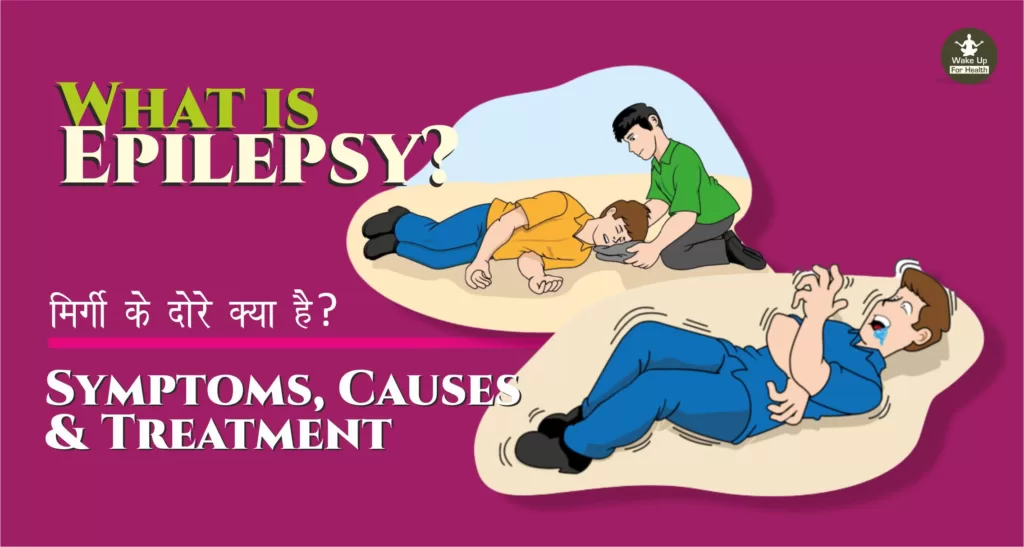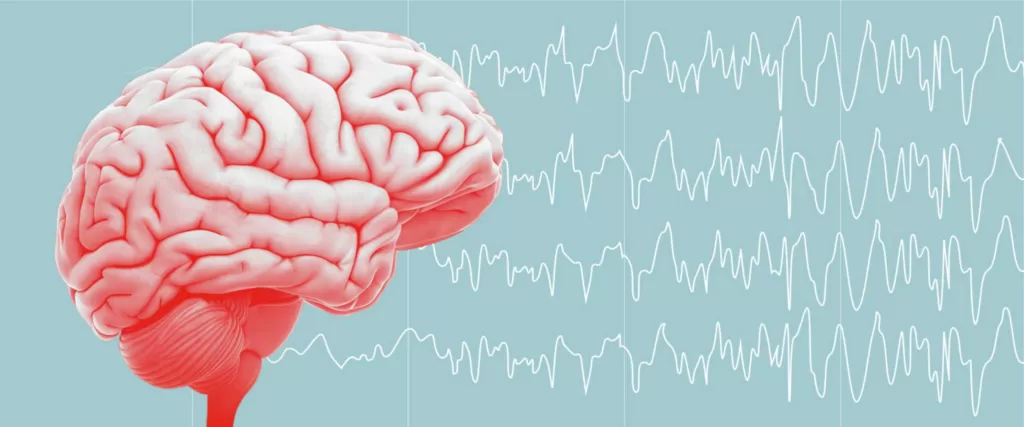Epilepsy is a disorder related to the central nervous system in which the activity of the nerve cells of the brain is interrupted. As a result, the patient has seizures, may become unconscious or may behave abnormally for some time.
Epilepsy is not an infectious disease. It is not caused by mental illness or mental weakness. In most cases, seizures caused by epilepsy do not affect the brain, but sometimes seizures can cause brain damage.

Epilepsy has many causes and symptoms. Epilepsy can happen to any person, but in most cases it is seen in young children and middle-aged people. There are many different ways to treat epilepsy. Epilepsy treatment includes meditation, surgery, and medication.
In this blog, we are going to explain in detail about the causes, symptoms and treatment of epilepsy. After reading this blog, you will get answers to all the questions related to epilepsy in your mind.
Understanding Epilepsy
Recurrent seizures are one of the main symptoms of epilepsy. If symptoms of epilepsy appear in a patient, a doctor should be consulted immediately.
Apart from seizures, other symptoms of epilepsy may include:-
• Sudden outbursts of anger
• Dizziness
• walking in one place
• An impulse without temperature
• Blackout or memory loss
• Not being able to remember anything for a while
• Feeling numb for no reason
• Falling down suddenly
• Repeating the same behavior
• Tingling and tingling sensation in the body
• Persistent clapping or hand rubbing
• Recurrent jerking of the muscles of the face, neck and hands
• Suddenly becoming scared and unable to talk
• Sudden change in the ability to touch, hear or smell
• Fainting for some time (during this time control of bowel or bladder is lost, there is exhaustion in the body)
Apart from these, there may be other symptoms of epilepsy. Epilepsy symptoms can vary depending on the patient and the type of epilepsy.
If you experience any of the above mentioned symptoms in yourself or any member of your family then a specialist doctor should be consulted as soon as possible.
Causes of Epilepsy, Recognizing Symptoms, Effective Treatments
The complaint of epilepsy can be due to many reasons. The main reasons for this may include:
• Genetic factors
• Fatal head injury
• Having a brain tumor or cyst
• AIDS
• Meningitis
• Vascular disease
• Injury to the baby’s head before birth
• Dementia or Alzheimer’s disease
• Excessive alcohol or drug use
• Brain stroke (considered the leading cause of epilepsy in people over 35)
• Lack of oxygen to the brain during childbirth
• Developmental disorder or neurological disease present at birth
Apart from the reasons mentioned above, epilepsy can have other causes depending on the age and overall health of the patient and the type of epilepsy.
Risk Factors of Epilepsy

The following factors can increase the risk of epilepsy:-
• Prescription drugs
• Tension
• Fever
• Side effects of drugs
• Bright or bright light
• Lack of sleep
• Excessive caffeine intake
• Excessive alcohol consumption
• Not eating / fasting for a long time
• Eating more
• Eating improperly
• Specific food items
• Very low blood sugar
The above factors can trigger epilepsy. For proper treatment of epilepsy, the patient should note down the triggers of the epileptic seizures and the pattern of the seizures, as this helps the doctor in diagnosis and treatment.
Treatment of Epilepsy
Epilepsy can be managed. Epilepsy treatment depends on the age and overall health of the patient and the severity of the symptoms. To treat epilepsy, doctors can use the following: –
1. Anti-Epileptic Drugs
Taking these medicines reduces the number of seizures caused by epilepsy and also eliminates the risk of recurrence in some people. This medicine should be consumed as per the directions given by the doctor.
2. Vagus Nerve Stimulation
This device is used to prevent seizures. It is surgically placed under the skin on the chest to stimulate the nerve through the neck with electricity.
3. Ketogenic Diet
For people who do not respond to medications, doctors suggest a high-fat, low-carbohydrate diet.
4. Brain Surgery
The part of the brain that causes seizures is removed or replaced during surgery.
5. Epilepsy Drugs
Doctors prescribe anti-seizure drugs as the first line of treatment for epilepsy. These medicines help to reduce the frequency and severity of seizures.
These drugs do not prevent severe seizures, nor do they cure epilepsy completely. If you have epilepsy, are prone to epileptic seizures or experience symptoms in yourself, it is important to see a doctor as soon as possible for proper diagnosis and treatment so that serious problems can be prevented.
F.A.Q.
Q.1 : Can you live normal life with epilepsy?
Ans. : With the right diagnosis and treatment, most patients can live a normal life. We have made great advancements in epilepsy treatment over the last 20 years with more medications, advanced diagnostic tests and more precise surgical techniques.
Q.2 : Is epilepsy a serious illness?
Ans. : People with status epilepticus have an increased risk of permanent brain damage and death. Sudden unexpected death in epilepsy (SUDEP). People with epilepsy also have a small risk of sudden unexpected death. The cause is unknown, but some research shows it may occur due to heart or respiratory conditions
Q. 3 : Is epilepsy curable?
Ans.: But unlike with other brain-related conditions, about two dozen medications can successfully treat many cases of epilepsy. Although there is no cure, these anti-seizure drugs turn the disease into a chronic, but well-managed condition for many to the point where it barely interferes with life.
Q. 4: Is epilepsy a brain damage?
Ans.: Epileptic seizures adversely alter brain function in other ways besides killing cells. Rewiring of brain circuitry and the birth of new brain cells (neurons and glia) both may lead to seizures.
Q.5 : What is best medicine for epilepsy?
Ans.: AEDs are the most commonly used treatment for epilepsy. They help control seizures in around 7 out of 10 of people. AEDs work by changing the levels of chemicals in your brain.
Common types include:
- sodium valproate.
- carbamazepine.
- lamotrigine.
- levetiracetam.
- topiramate.
(Disclaimer: This article is for general information only. It is just to wake you up for your health purpose. Out intension is not to mislead or It cannot in any way be a substitute for any medicine or treatment. Always contact your doctor for more details.)
1 thought on “What is Epilepsy : Symptoms, Causes, Treatment”